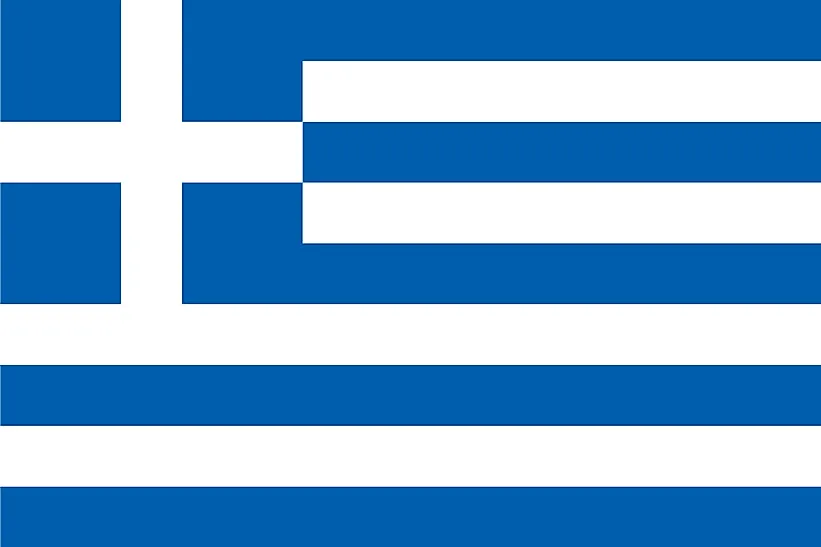
Greece
| Continent | Europe |
| Capital | Athens |
| Population | 10,773,253 |
| GDP | $291.00 Billion |
| GDP per Capita | $26,800 |
| Dialing Code | +30 |
| ISO Code (2-letter) | GR |
| ISO Code (3-letter) | GRC |
Greece Landscapes






About Greece
Welcome to Greece, a nation where ancient wisdom meets Mediterranean charm. With approximately 10.7 million people occupying 131,957 square kilometers, Greece combines millennia of cultural heritage with stunning landscapes, standing as a living museum of Western civilization’s foundations.
Geographic Features and Natural Beauty
Greece’s geography is characterized by its extensive coastline, the longest in the Mediterranean, and over 6,000 islands and islets, of which 227 are inhabited. The mainland features dramatic mountain ranges, including Mount Olympus, mythological home of the ancient gods.
The landscape varies from the rugged Pindus mountains to fertile plains, while the Aegean and Ionian seas embrace the country’s shores. The Mediterranean climate supports diverse ecosystems, from pine forests to olive groves.
Notable features include the unique geology of Meteora, where monasteries perch atop natural rock pillars, and the caldera of Santorini, formed by one of history’s largest volcanic eruptions. Protected areas like the National Marine Park of Alonissos showcase Greece’s commitment to biodiversity conservation.
Cultural Heritage and Traditions
Greek culture represents the foundation of Western civilization, having profoundly influenced philosophy, democracy, art, architecture, literature, and science. Ancient sites like the Acropolis of Athens stand as testaments to Greece’s cultural impact.
Traditional music and dance remain vibrant, with regional styles like rebetiko and syrtaki expressing Greek identity. Religious traditions, centered on Greek Orthodox Christianity, play a significant role in daily life and annual celebrations.
Greek cuisine, recognized as part of the Mediterranean diet (UNESCO Intangible Cultural Heritage), features olive oil, fresh vegetables, and seafood. Traditional crafts include pottery, textile weaving, and metalwork, while modern Greek culture continues to innovate while honoring its heritage.
Historical Journey
Greece’s history spans from Minoan and Mycenaean civilizations through Classical Greece, which saw the birth of democracy and major philosophical schools. The Hellenistic period spread Greek culture across the ancient world.
After periods under Roman, Byzantine, and Ottoman rule, modern Greece gained independence in 1821. The 20th century saw significant changes, including population exchanges, World War II resistance, civil war, and eventual integration into the European Union.
Modern Economic Landscape
Today’s Greek economy combines traditional strengths in shipping and tourism with emerging sectors like renewable energy and technology. The country remains one of the world’s largest maritime powers, controlling about 20% of global merchant fleet capacity.
Recent years have seen economic reforms and recovery following the 2009 crisis, with emphasis on sustainable development and digital transformation. Tourism continues as a major economic driver, while agriculture, particularly olive oil and wine production, maintains its significance.
International Relations and Global Position
Greece plays a crucial role in the European Union and NATO, serving as a bridge between Europe, the Balkans, and the Eastern Mediterranean. The country’s strategic location and cultural heritage make it an important regional player.
Did You Know?
• The Greek language has been spoken for more than 3,000 years?
• Greece has more archaeological museums than any other country?
• The country enjoys an average of 250 days of sunshine annually?
• Ancient Greeks invented the theater and established the Olympic Games?
Conclusion
Greece represents an extraordinary fusion of historical legacy and contemporary vitality. From its ancient monuments to its vibrant island culture, from its philosophical heritage to its modern innovations, Greece continues to evolve while preserving its unique identity. As it addresses contemporary challenges and opportunities, Greece remains committed to its role as a cultural beacon and bridge between civilizations, maintaining its distinctive character while embracing future possibilities.